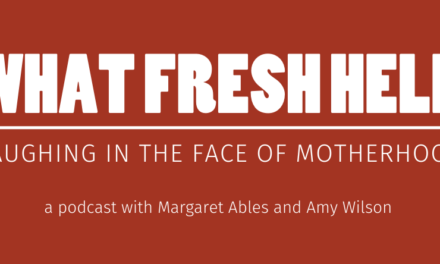I find myself volunteering a lot lately. For many years, I walked dogs and cleaned litter boxes at shelters. Last year, I tutored a few kids at a school focused on getting middle school boys from communities where the schools are struggling into private high schools. (I was not cut out to be a teacher.) In 2018, I’ve been using more of my digital media experience to help local, first-time candidates running for office. I’ve also lent my talents to a grassroots group, which is how I found myself trying to post a “political ad” on Facebook.
On July 4, this group wanted to promote voting as the patriotic thing to do and include a link to an online tool that allows you to register—and receive reminders—to vote. The group wanted to target like-minded voters in states with important congressional elections. That was the first time I ran into Facebook’s new rules on placing political ads.
Basically, Zuckerberg and crew wanted me to prove I’m not a Russian operative. I was more than willing to do this, but when I clicked on the link to continue the verification process, nothing happened. So I had to send Facebook an email. Rather than fixing the actual problem, the company just reviewed my boosted post and decided it wasn’t political.
The ad was successful. So the group decided to try it again, but this time without the July 4 messaging. The actual visual was the same, but the text in the post was slightly different. It was approved immediately, but I received a message telling me it wasn’t performing well because there was too much text in the image. I edited it a bit, but when I resubmitted the ad, minutes later, it was now being blocked as “political.” I tried challenging the assessment based on the fact that, 10 minutes before, it was apparently not political, and there had been no substantial changes. I kept getting the same formulaic answer.
I can’t think of a story that better illustrates the imperfection of Facebook’s system for weeding out nefarious activity. It immediately had me thinking about all the press releases and story pitches I received from progressive news outlets complaining that they had seen their traffic drop precipitously as Google and Facebook tried to ferret out fake news and bury it in search results and newsfeeds.
I don’t agree with some other commentators—including some of our columnists—that Facebook, Google, and their ilk don’t have some responsibility to monitor what kind of content they’re promoting. Most of us can agree that YouTube shouldn’t allow beheading videos. But the conversation gets thornier when we start talking about, say, Alex Jones’ InfoWars, which was summarily booted from most of the major platforms in August. The InfoWars website is still alive and well, complete with a story titled, “THE WAR TO DESTROY ALEX JONES, PART ONE,” which had been shared to Facebook 255 times, as of this writing.
For most of his career, Jones has enjoyed the right to say whatever he wants, no matter how hateful or ill-informed it might be (and he’s not the first guy to make a career this way). However, something changed when a couple of Sandy Hook parents, Lenny Pozner and Veronique De La Rosa, sued him. They’d been threatened and harassed by people incited by Jones’ insistence that Sandy Hook is a hoax and that their 6-year-old son Noah had not died in the mass shooting. They’ve been forced to move seven times in 5 years.
It’s grotesque. I have no idea whether or not Jones will be held accountable for the impact his words have had. But I do know the arguments that Facebook clamping down on hate speech or fake news is unconstitutional censorship are specious at best. Facebook is not the government and is not legally required to let you post whatever you want on its platform. (Just like The New York Times doesn’t have to run every op-ed that gets sent its way.) It has every right to enforce community standards. You have no inalienable right to Facebook, but Facebook and its brethren have to take responsibility for the power their algorithms hold to (mis)inform the public. They also need to figure out how to do it without sending people like me chasing my tail when all I want to do is encourage people to vote.







